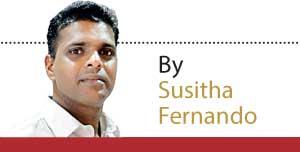10 May 2024 - {{hitsCtrl.values.hits}}
- Portsmouth will host the world premiere of a unique version of Haydn’s Creation on 12 May (Sunday) at St Mary’s Church in Portsea
- The University of Portsmouth Choir, accompanied by the Havant Symphony Orchestra, will give the performance, which is in aid of the St Mary’s Music Foundation
- Gayathri will make a significant contribution to the completely new edition of Creation which has been prepared in order to better fit the poetry of Ane Hunter
- University of Portsmouth choir alumni will swell the ranks of the 80-voice choir for what promises to be a grand and unique performance
Internationally awarded musician and a leading composer from Sri Lanka Gayathri Khemadasa has been commissioned to set the song for Eve in the choral works; The Creation written by Austrian composer of the Classical period Joseph Haydn. This is a rare tribute to a Sri Lankan or an Asian musician. Gayathri will make a significant contribution to the completely new edition of The Creation which has been prepared in order to better fit the poetry of Ane Hunter, a Scottish poet who had written a set of canzonettas with Haydn during his first visit to London, produced a new text for Creation around 1804’s poetry.
works; The Creation written by Austrian composer of the Classical period Joseph Haydn. This is a rare tribute to a Sri Lankan or an Asian musician. Gayathri will make a significant contribution to the completely new edition of The Creation which has been prepared in order to better fit the poetry of Ane Hunter, a Scottish poet who had written a set of canzonettas with Haydn during his first visit to London, produced a new text for Creation around 1804’s poetry.
“It is a rare opportunity to have a Sri Lankan composer commissioned to write music in a similar manner and right along with European musical giants such as Haydn,” Gayathri Khemadasa, who is also a former member of the University of Portsmouth Choir said.
“I am incredibly proud and excited to be able to ‘find the voice for Eve’ and it is fitting that Portsmouth will be the venue for the first ever performance of the work,” Prof. George Burrows from the University of Portsmouth who has led a practice-research project to address how Hunter’s words are best fitted with respect to Haydn’s music and the implications of that exercise said.
University of Portsmouth choir alumni will swell the ranks of the 80-voice choir for what promises to be a grand and unique performance. This performance marks the culmination of a practice-research project of Prof. Burrows and also marks 20 years of the directorship of the Choir by Professor Burrows. This will also be the first time this version will have been heard anywhere in the world.
“It is a rare opportunity to have a Sri Lankan composer commissioned to write music in a similar manner and right along with European musical giants such as Hayden,”
- Gayathri Khemadasa
“Long considered as one of the greatest of all choral works, ‘The Creation’ was written by Joseph Haydn in 1797, after attending a massed performance of Handel’s Messiah at Westminster Abbey in 1794,” a study on the history Haydn’s ‘The Creation’ noted. However, his bilingual translation (German and English) of the text was found to be clumsy and incomplete in parts by English audiences. Anne Hunter, the poetess, produced a new text for Creation around 1804, including a new song for Eve, but the text of her version staged by doctors in 1993, was poorly fitted to the music and an additional but critical song that she inserted in the work was left out, it added.
“Although a performance of Hunter’s version of Haydn’s Creation was staged by doctors in 1993, her text was poorly fitted to the music and an additional, but critical song that she inserted in the work was left out,” Professor Burrows said. “That song comes in Part 3 of Creation which draws on Milton’s Paradise Lost to depict Adam and Eve enjoying the sublime and unspoiled nature of Eden and their love for one another.
“I am incredibly proud and excited to be able to ‘find the voice for Eve’ and it is fitting that Portsmouth will be the venue for the first ever performance of the work,”
Prof. George Burrows
“In Haydn’s score, Eve is not given a solo aria at all but sings almost entirely in duet with Adam. Hunter obviously felt Eve needed more of a voice of her own and so she inserts a three stanza ‘Song Intended for Eve’ in Part 3, albeit without any indication of what music should be used.
Subsequent performances had removed the song for Eve, as the music didn’t fit the text. However, Professor George Burrows has led a practice-research project to address how Hunter’s words are best fitted with respect to Haydn’s music and the implications of that exercise.
The University of Portsmouth, with nearly 28,000-student population includes over 5,000 international and EU students from more than 150 countries is a progressive and dynamic university with an outstanding reputation for innovative teaching, outstanding learning outcomes and globally significant research and innovation.
Situated at the heart of a lively city by the sea, on England’s south coast, the UoP has been awarded the highest overall rating of Gold in the most recent Teaching Excellence Framework, one of only 27 Gold rated universities in England and one of five Gold rated universities in the South East.

28 Dec 2024 9 hours ago
28 Dec 2024 28 Dec 2024
28 Dec 2024 28 Dec 2024
28 Dec 2024 28 Dec 2024
28 Dec 2024 28 Dec 2024